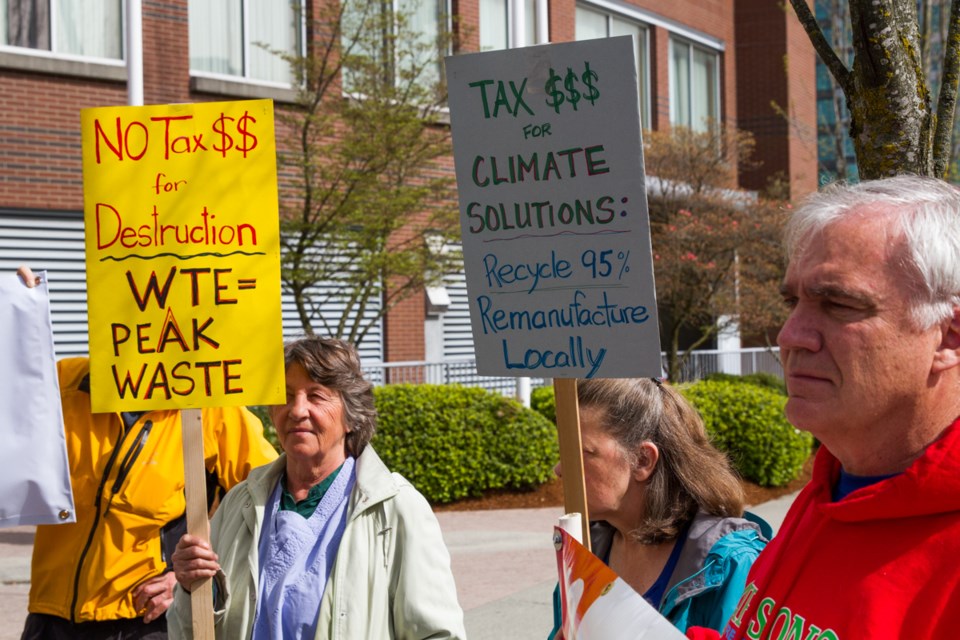Metro Vancouver is pointing to the success of its longstanding Burnaby incinerator in its continued attempts to sway the support of Lower Mainland municipalities for another facility, to be built at one of three potential sites in B.C.
The group stressed the Burnaby facility’s economic and environmental strides at a stakeholders’ meeting on Wednesday, held at the Hilton Vancouver Metrotown.
“Our existing waste energy facility in Burnaby, which has been operating for 25 years, is the least cost asset in the Metro Vancouver system.” said Paul Henderson, general manager of solid waste services with Metro Vancouver, noting that an incinerator would be greener than sending waste to landfills.
But outside, a handful of picketers and opponents voiced their resistance to the project, citing the estimated cost of $517 million to taxpayers and public health risks of burning garbage.
“They’re trying to say that by burning the waste, we’re going to get rid of landfills altogether, but they’re just condensing the toxins into ash which then has to be buried,” said Jamie Kaminski, director of Zero Waste Canada, adding that chemicals from ash can leach into soil and bodies of water.
“We believe that it competes directly with recycling, reuse and other more realistic green initiatives. It’s not coming up with a solution, it’s just coming up with a big price hike for the province.”
However, Henderson told reporters that 20 per cent of the material that goes through the Burnaby waste-to-energy facility becomes ash, which is safely managed through landfills in Delta and Alberta.
“All of that ash has been concluded to be suitable for management as municipal solid waste and non-hazardous,” he said.
The proposed locations for the waste-to-energy facility are Delta, Nanaimo and Port Mellon on the Sunshine Coast, but councillors from surrounding municipalities say the emissions from the Burnaby site are already affecting the environments in their cities.
Abbotsford Coun. Patricia Ross said ozone levels increasing in Fraser Valley, mainly due to pollution from bordering cities, and that the actual severity of the emissions is far greater than what Metro Vancouver has estimated.
“I think they ought to be respectful of our wishes and not build this,” she said. “I think the province needs to step in now, kill this thing right away before the taxpayer’s stuck with a multimillion-dollar bill.”



